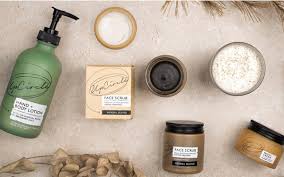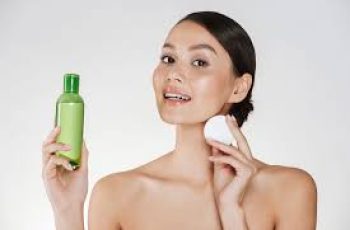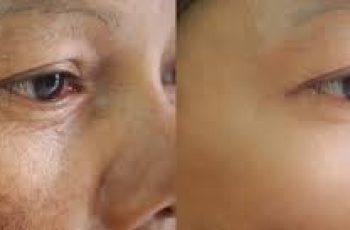
What is Vegan Skin Care? lowest point
Do you want to make more eco-friendly choices in your beauty routine?
What you may not know is that many beauty products on the market contain animal ingredients and are therefore not suitable for vegans. However, there are many vegan skin care products available.
But what is vegan skin care and how do you incorporate it into your routine?
We have all the answers for you.
What is Vegan Skin Care?
First of all, what makes a vegan skincare product vegan?
For a vegan skincare product, it must not contain any ingredients of animal origin. This can be anything from milk or honey to collagen and some alpha hydroxy acids (AHAs).
Is “vegan skincare” cruelty-free?
When it comes to the difference between vegan and cruelty-free skincare, there are a few differences.
Simply put, vegan skincare refers to ingredients that do not come from animal sources, while cruelty-free products, while not tested on animals, may still contain animal-derived ingredients.
So not all cruelty-free skin care products are vegan, and not all vegan skin care products are technically cruelty-free.
To make things easier, all of our product range is cruelty-free. Oh, and we’re also PETA certified and don’t allow animal testing at any stage of development, whether it’s raw materials or the final product.
Why choose vegan skincare?
So what are the benefits of vegan skin care?
Very suitable for animals
It almost goes without saying that vegan, cruelty-free skin care is much kinder to the animal kingdom.
When you choose our vegan skincare products, you can be sure that no animals were harmed in the production of the products you use.
better for the environment
Like the meat industry, the animal-based beauty industry has a negative impact on the planet, causing air pollution, water pollution, and deforestation.
We are proud that our suppliers are committed to the highest standards of environmental stewardship, giving you peace of mind when choosing our vegan products.
Five Popular Vegan Skin Care Ingredients
New to the vegan world and not sure what ingredients to look for when choosing skin care products? We have them.
Here are some of the most common vegan skin care ingredients you may not know about:
Niacinamide (Vitamin B3): is synthetically produced and vegan. Because it strengthens the skin barrier, it is often used in skin care products to keep skin hydrated.
2. Vitamin C: Purported to have the ability to improve skin health; since vitamin C fights signs of aging and minimizes damage from external influences, it is an active ingredient in skin care.
3. Vitamin E: This ingredient has anti-inflammatory properties and acts as a protective shield against free radicals. Vitamin E is commonly found in various vegetable oils.
4. BHA (Beta Hydroxy Acid): BHA is also a vegan skin care ingredient. It is believed to have anti-inflammatory and exfoliating properties, prevent blackheads and blemishes, and have a calming effect on the skin.
Seaweed: Derived primarily from algae, seaweed is a beneficial antioxidant that reduces inflammation. Green, red, and brown algae are all vegan and often used in skin care.
5. Bakuchiol: This ingredient can help soothe and tighten skin, making it a great vegan alternative to retinol. Bakuchiol is extracted from the psoralen plant and is always vegan.
Other plant-based oils like coconut, rosehip, or avocado oil (just to name a few) are also common vegan skin care ingredients, so you don’t have to worry!
Five Popular Non-Vegan Skin Care Ingredients
Here are some non-vegan skin care ingredients commonly found in many beauty products.
1. Beeswax: This is a substance produced by female bees to build the hive. The British Beekeepers Association estimates that bees must visit a staggering 30 million flowers to produce just one pound of beeswax.
This product is used in the manufacture of moisturizers, lip balms and some mascaras to prevent certain ingredients from separating. This is not vegetarian.
Vegan alternatives: Vegetable and soy waxes (such as candelilla wax) can serve as vegan alternatives to beeswax.
2. Glycerin: Glycerin is most commonly found in soaps and moisturizers and comes from plant and animal sources.
Therefore, it’s difficult to determine its origin—vegan glycerin is often labeled as “vegetable glycerin.” Animal glycerin is a protein obtained from the horns, hooves, and hair of animals.
Vegan Substitutes: This ingredient is found in plant sources like soy or corn. Their extracts are a great source of glycerin in vegan skin care products.
NOTE: Be careful, palm oil also contains glycerin, but is often rejected by vegans due to its association with deforestation. However, some forms may come from sustainable sources and therefore be vegan.
3. Retinol: Retinol can be obtained from plants and animals. Therefore, always check the ingredient label before choosing a product.
Traditionally, it is extracted from animals as a form of vitamin A and is often included in anti-wrinkle and eye creams.
Recently, retinol is being produced synthetically in laboratories to accurately replicate the natural molecule.
Vegan alternatives: Pumpkin seed oil, hemp oil, bakuchiol oil, and rosehip oil are all natural alternatives as they are rich in vitamin A.
4. Squalene: Originally derived from shark liver oil, squalene is commonly found in lip balms, deodorants and moisturizers.
Vegan Substitutes: Olive oil or wheat germ oil are great vegetarian options.
5. Collagen: Collagen is thought to have youth-promoting properties and may improve skin elasticity, although there is no clear evidence that the skin can absorb it effectively.
This protein is usually obtained from animal tissue, bones, leather or ligaments of cattle or marine organisms.
Your Vegan Skin Care Routine
Are you ready to live your best plant-based life? Check out our selection of vegan, cruelty-free skincare products!
Start with a vegan cleanser
We are proud to offer a wide range of vegan cleansers suitable for all skin types.
If you have dry or acne-prone skin, our gentle formula deeply cleanses skin, removing dirt and excess oil without stripping it of moisture.
How to use: Apply a small amount to your hands, massage into skin using circular motions, then rinse.
Purify your skin with a vegan toner
Facial toners can achieve the results of other products.
Not only does it prime and prep your skin, it also provides soothing ingredients to give you the best possible foundation before applying more skin care products.
Whether you’re looking for extra exfoliation or a boost of moisture, we’ve got the best VEGAN TONS to help you achieve your goals.
How to use: Put two to three drops on a cotton pad and gently wipe the skin to further cleanse the skin of remaining impurities.
Nourish with Vegan Essence
Serums are your best friend when you want to provide your skin with extra nourishment. Our vegan serum is great for hydrating, smoothing and balancing skin tone.
How to use: Massage two to three drops of product into fingertips and press firmly into skin.
Don’t Forget the Eyes: Vegan Eye Cream
The skin around our eyes is very sensitive, so using a gentle vegan eye cream is a must. Don’t worry, the vegan formula provides just as much moisture to keep your skin looking healthy.
Whether you’re worried about dark circles or fine lines, we have a variety of vegan eye creams to help brighten, plump and rejuvenate your eyes!
How to use: Apply a pea-sized amount to your ring finger. Apply to eye area and blend with gentle tapping motions.
Finally, apply vegan moisturizer
No matter your skin type, moisturizer is key. Keeping your skin well hydrated has countless benefits, including helping to improve skin tone and texture.
But no matter the skin concern, we’ve developed a range of vegan moisturizers to suit every skin type!
How to use: Take a spoonful of moisturizer and apply the product to all areas of the face, massaging in circular motions.
Pampering night? Reaching for the Vegan Face Mask
Whether you’re looking for an intensive weekly exfoliation or a nourishing nighttime vegan mask, pamper yourself and discover our range of vegan, cruelty-free skin care treatments!
No matter your skin type or specific concern, our friendly, vegan formulas are packed with the vitamins and minerals you need to keep your skin healthy!
When it comes to vegan skincare, there’s no reason why you can’t enjoy healthy skin while caring for the planet. We ensure your products stay effective and deliver results for all skin types.


